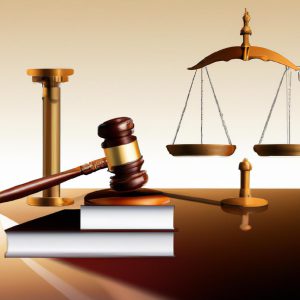In the intricate realm of estate planning and guardianship, the distinction between a custodian and a guardian holds profound significance. While both roles involve overseeing the well-being and assets of individuals deemed incapable of managing their affairs, their responsibilities and authority differ significantly. As seasoned practitioners in the field of elder law, our team at Morgan Legal Group in New York City is well-versed in navigating the complexities of these crucial distinctions to ensure the protection and best interests of our clients. Join us as we delve into the nuanced differences between custodians and guardians, providing clarity and insight for those navigating the intricate landscape of estate planning and asset management.
Key Differences Between Custodian and Guardian in Estate Planning
In estate planning, it is crucial to understand the key differences between a custodian and a guardian. While both roles involve caring for another person’s assets, they serve distinct purposes and come with different responsibilities.
Custodian:
- Manages and oversees the assets of a minor until they reach a certain age
- Is appointed by the donor or creator of the assets
- Has a legal obligation to act in the best interest of the minor
Guardian:
- Takes care of the personal well-being and financial affairs of an incapacitated individual
- Is appointed by a court in cases where an individual lacks the capacity to make decisions
- Has broader decision-making authority compared to a custodian
Important Factors to Consider When Choosing a Custodian or Guardian
When it comes to choosing a custodian or guardian for your loved ones, there are several crucial factors that must be carefully considered. One important factor is the individual’s ability to provide proper care and support for the minor or incapacitated person. This includes their financial stability, living situation, and overall well-being. It is essential to choose someone who is responsible, reliable, and trustworthy to ensure the best possible outcome for the individual in need of a custodian or guardian.
Another crucial factor to consider is the individual’s relationship with the minor or incapacitated person. It is important to choose someone who has a close and loving relationship with the individual in need of a custodian or guardian. This will ensure that the person appointed will have the best interests of the individual at heart and will be able to provide the necessary care and support. Additionally, it is important to consider the individual’s ability to make important decisions on behalf of the minor or incapacitated person, as well as their willingness to prioritize the individual’s needs above their own.
Legal Responsibilities and Powers of a Custodian versus a Guardian
In the realm of legal responsibilities and powers, it is crucial to differentiate between a custodian and a guardian. A custodian is typically responsible for the day-to-day care and financial management of a minor’s assets, while a guardian is granted broader powers to make decisions on behalf of an incapacitated individual.
- Custodian:
- Manages minor’s assets
- Provides day-to-day care
- Reports to the court regularly
- Guardian:
- Makes legal decisions for an incapacitated individual
- Oversees medical care and living arrangements
- May require court approval for major decisions
| Responsibility | Custodian | Guardian |
|---|---|---|
| Financial Management | X | |
| Healthcare Decisions | X | |
| Court Oversight | X | X |
Understanding the differences in the is essential when navigating estate planning, probate, and the complexities of elder law. Both roles require careful consideration and adherence to legal requirements to ensure the well-being and protection of those under their care.
Recommendations for Appointing a Custodian or Guardian in Your Estate Plan
When it comes to appointing a custodian or guardian in your estate plan, it’s crucial to understand the key differences between the two roles. A custodian is typically designated to manage financial assets and make investment decisions on behalf of a minor or incapacitated individual. On the other hand, a guardian is responsible for making personal and healthcare decisions for the ward. Here are some important considerations to keep in mind when selecting a custodian or guardian:
Factors to consider when appointing a custodian:
- Financial acumen and investment experience
- Trustworthiness and reliability
- Ability to act in the best interests of the minor or incapacitated individual
- Willingness to fulfill fiduciary duties diligently
Factors to consider when appointing a guardian:
- Ability to make sound healthcare decisions
- Emotional stability and compassion
- Availability and willingness to take on the responsibility
- Understanding of the ward’s preferences and values
Q&A
Q: What is the difference between a custodian and a guardian?
A: A custodian is generally responsible for the day-to-day care and maintenance of a person or property, while a guardian has legal authority and responsibility for making important decisions on behalf of another person, often a minor or incapacitated individual.
Q: Can one person serve as both a custodian and a guardian?
A: Yes, it is possible for one person to fulfill both roles, depending on the specific circumstances and legal requirements.
Q: What are some examples of custodial duties?
A: Custodial duties may include cleaning, maintenance, and upkeep of property, as well as providing care and support to individuals in need.
Q: In what situations would a guardian be appointed?
A: A guardian may be appointed when a person is unable to make decisions for themselves due to age, illness, or incapacity. This could include decisions related to healthcare, finances, or personal welfare.
Q: How is the role of a custodian different from that of a legal guardian?
A: A custodian is generally responsible for physical care and maintenance, while a guardian has legal authority to make decisions on behalf of another person.
Q: Can a custodian become a guardian if necessary?
A: In some cases, a custodian may be appointed as a guardian if the situation requires it and if they meet the necessary legal requirements.
Q: Are there specific qualifications required to be a custodian or guardian?
A: Qualifications for custodians and guardians may vary depending on the jurisdiction and the specific duties involved. In general, individuals appointed as guardians may need to meet certain legal and ethical requirements.
In Summary
In conclusion, the distinction between custodian and guardian is an important one to understand in legal and parental contexts. While both roles involve caring for and protecting someone or something, the specific responsibilities and authority granted differ significantly. It is crucial for individuals to be aware of the differences in order to navigate decision-making processes effectively and ensure the well-being of those under their care. By understanding the nuances of these roles, individuals can better fulfill their duties as custodians and guardians, ultimately leading to more positive outcomes for those they are responsible for. Stay informed, stay empowered, and continue to advocate for the best interests of those in your care. Thank you for reading.




